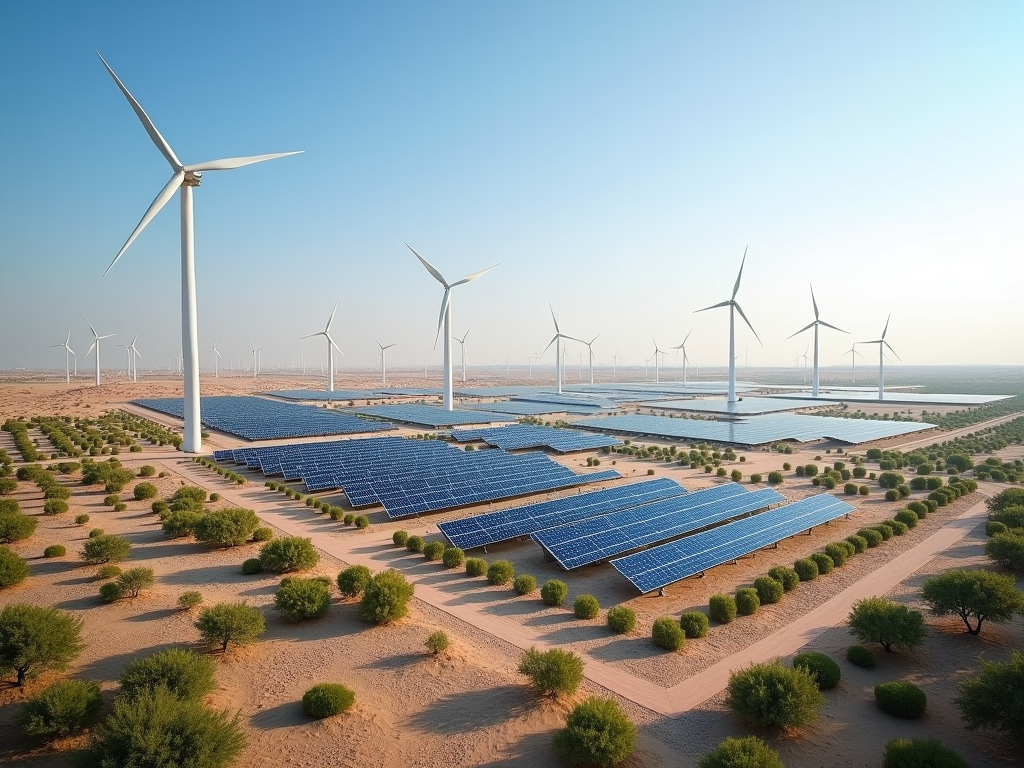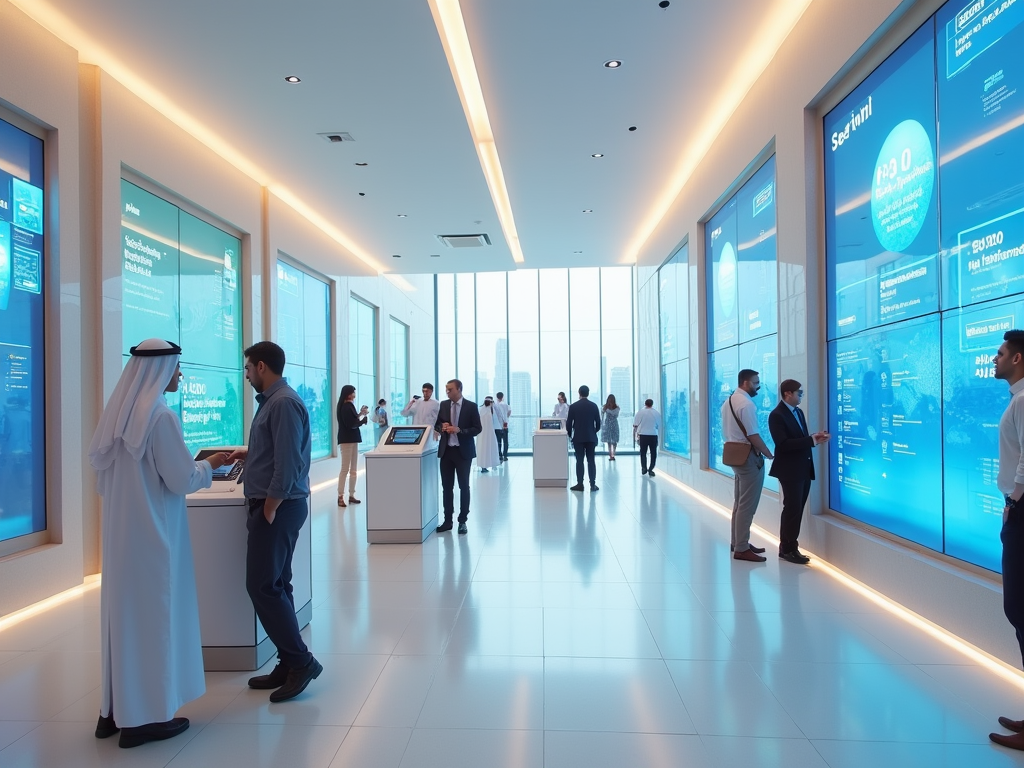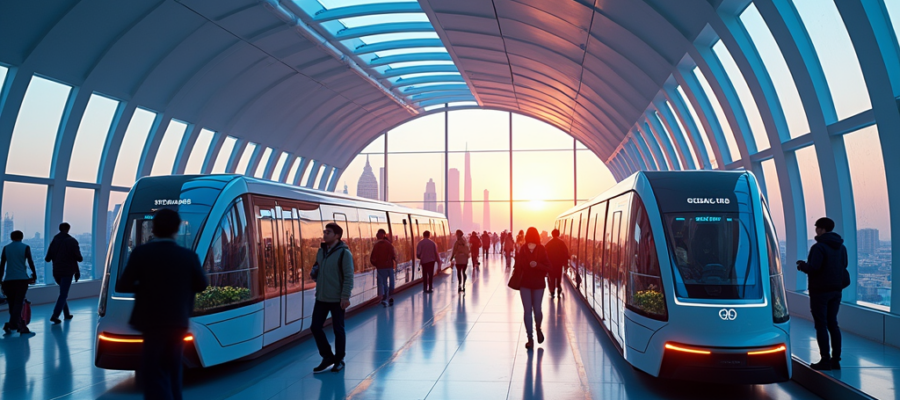Dubai stands at the forefront of smart city innovations, driven by its ambitious vision to create a sustainable and technologically advanced urban environment. The emirate has invested heavily in harnessing the latest technologies to enhance the quality of life for its residents while ensuring efficient resource management. With ambitious initiatives spanning from smart transport systems to intelligent energy solutions, Dubai serves as a global model for cities aiming to integrate advanced technologies into urban planning. This article explores the key initiatives and technologies that are propelling Dubai into a new age of urban living.
Smart Transportation Initiatives

Transportation in Dubai has undergone a significant transformation, emerging as one of the most advanced systems globally. Central to these efforts is the Dubai Autonomous Transportation Strategy, aimed at converting 25% of all trips in the city to self-driving modes by 2030. This plan is set to encompass various modes of transport, reducing travel times, enhancing safety, and lowering emissions. Notable developments include:
- The introduction of Dubai’s autonomous taxis and buses, which are redefining passenger mobility.
- Implementation of smart traffic management systems that utilize AI to monitor and regulate traffic flow.
- The expansion of the Dubai Metro, incorporating smart ticketing systems that enhance user experiences.
These initiatives illustrate how Dubai is leveraging advanced technologies to create a seamless and efficient transportation ecosystem.
Smart Energy Solutions

Dubai’s approach to sustainable energy is pivotal in fostering its smart city vision. The emirate aims to generate 75% of its energy from clean sources by 2050 through the Dubai Clean Energy Strategy. This ambitious goal is facilitated by several innovative projects designed to enhance energy efficiency:
- The Mohammed bin Rashid Al Maktoum Solar Park, one of the largest renewable energy projects in the world, seeks to produce 5,000 MW of solar energy.
- The establishment of Smart Grids allows for real-time management of energy distribution, significantly improving efficiency.
- Incorporation of Building Management Systems (BMS) which optimize energy usage in commercial and residential buildings.
By investing in smart energy solutions, Dubai is making strides towards sustainability while simultaneously supporting its economic growth.
Dubai’s commitment to smart governance is evident in its initiatives to foster citizen engagement through digital platforms. The Smart Dubai initiative focuses on making all government services accessible to residents via an integrated mobile app. This has resulted in increased transparency and efficiency in public service delivery, allowing residents to:
- Access essential services anytime, anywhere, promoting a user-centric approach.
- Participate in decision-making processes and provide feedback on public services through e-governance platforms.
- Engage with government entities in real time, enhancing accountability and responsiveness.
These efforts not only strengthen the relationship between citizens and their government but also position Dubai as a pioneer in smart governance.
Urban Sustainability and Waste Management Innovations
Urban sustainability is a core component of Dubai’s smart city strategy, with the emirate undertaking several initiatives to promote responsible waste management. The Dubai Municipality has implemented a range of solutions to reduce waste and promote recycling:
- The “Waste to Energy” project, which converts waste into electricity, thereby reducing landfill dependency.
- Smart waste bins equipped with sensors that send alerts when they are full, optimizing collection routes.
- Public awareness campaigns aimed at promoting recycling efforts among residents.
These innovations not only enhance the city’s waste management systems but also contribute to Dubai’s overall sustainability goals.
Conclusion
Dubai’s leadership in smart city innovations illustrates its commitment to creating a sustainable, efficient, and technologically advanced urban environment. From smart transportation and energy solutions to enhanced governance and waste management, the city is setting new standards for urban living. With continued investments in technology and infrastructure, Dubai is not only improving the quality of life for its residents but also paving the way for other cities to follow suit. As these initiatives gain momentum, Dubai is poised to remain a global leader in smart city development.
Frequently Asked Questions
1. What is the Dubai Autonomous Transportation Strategy?
It is a plan aimed at converting 25% of all trips in Dubai to autonomous modes of transport by 2030, including taxis and buses.
2. What are the goals of the Dubai Clean Energy Strategy?
To generate 75% of the emirate’s energy from clean sources by 2050, enhancing sustainability and reducing reliance on fossil fuels.
3. How does the Smart Dubai initiative improve governance?
The initiative offers an integrated mobile app for accessing government services, promoting transparency and allowing for citizen feedback.
4. What role does waste management play in Dubai’s sustainability efforts?
Dubai is implementing innovative waste management solutions, including a “Waste to Energy” project and smart waste bins to enhance recycling and reduce landfill use.
5. How can other cities learn from Dubai’s smart initiatives?
Other cities can adopt Dubai’s innovative practices in transportation, energy, governance, and urban sustainability to improve quality of life and operational efficiency.
